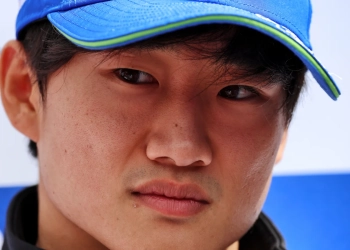The FIA has revised the International Sporting Code (ISC) to mandate right of review requests be made within a shorter time window.
The new ruling will apply to all FIA series, including Formula 1.
Previously, teams had 14 days from the end of an event to submit a request, but the revised rules have seen that timeframe slashed to 96 hours with the option of a further day should FIA stewards permit it.
The revised section of the ISC states the following: “The period during which a petition for review may be brought expires after 96 hours from the end of the competition concerned, except in circumstances where the stewards consider that compliance with the 96-hour deadline would be impossible, in which case the stewards may extend this deadline by no more than 24 hours.”
Furthermore, any request “must be accompanied by a deposit, the amount of which will be set annually by the parent ASN of the international series; or by the FIA for its championships, cups, trophies, challenges or series.
“In addition, the deposit must be specified in the sporting regulations or supplementary regulations of the competition. This deposit may only be returned if the right of review is upheld, unless fairness requires otherwise.”

The most recent right-of-review case in Formula 1 was submitted by Haas, 14 days after the United States Grand Prix in Austin, Texas, with the outfit believing several teams went unpunished for breaching track limits.
Several teams were called upon for a hearing as the FIA rejected Haas’ request on November 9, with 18 days between the decision and the chequered flag falling in Austin.
In the days after the hearing, the FIA made its intention known to shorten the right of review window, which has now been confirmed.
The FIA has also made changes to the F1 appeal process, with teams being handed a 96-hour window after submitting an intention of appeal to commit.
A fee of €6000 will then be required of the respective team, even if the appeal isn’t carried out – “the appeal deposit becomes due from the moment the appellant notifies the stewards of the intention to appeal and becomes payable on the notification of the appeal,” reads the FIA ruling.
“The deposit remains payable even if the appellant does not follow up the declared intention to appeal”.
The FIA has also sought to include measures that will penalise teams who lodge but subsequently drop an appeal to avoid incurring a grid penalty during the notification of appeal window.
The governing body states that “when the appellant has received a benefit from the intention to appeal, the withdrawal request should be considered at a subsequent hearing, the ICA [International Court of Appeal] will then rule on the consequences and costs deriving from the withdrawal of the intention to appeal”.









